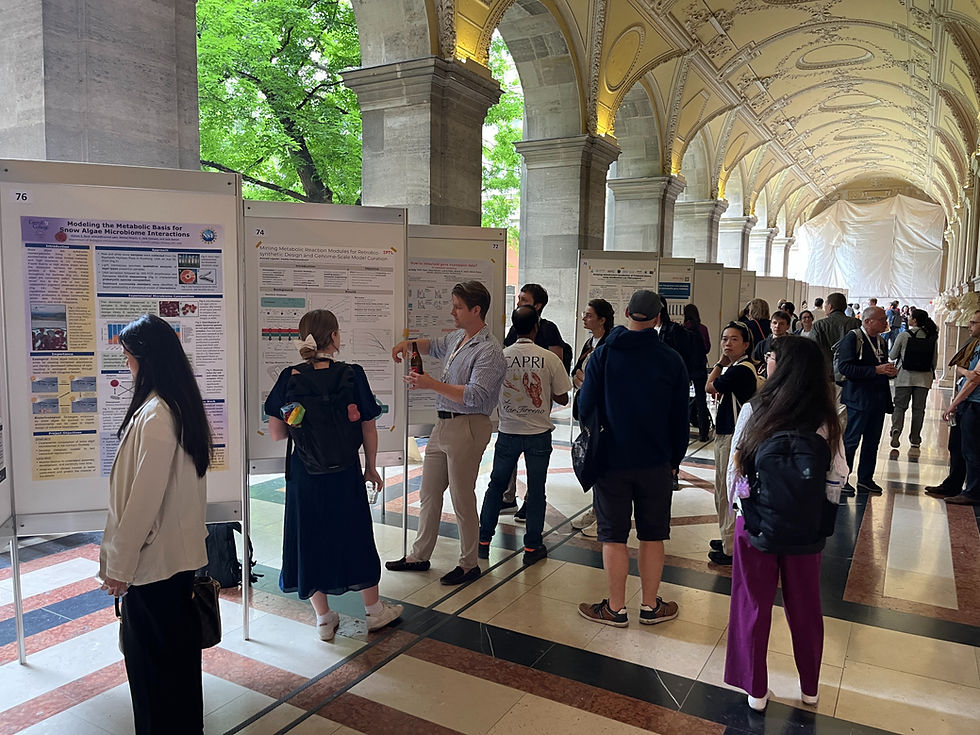Prospective Life Cycle Assessment of Microbial Sophorolipid Fermentation
- Sep 22, 2023
- 2 min read
We are excited to announce that our research article "Prospective Life Cycle Assessment of Microbial Sophorolipid Fermentation" has recently been published in MDPI journal Fermentation as part of the Special Issue Production and Application of Bioactive Biosurfactants and is available online here: https://www.mdpi.com/2311-5637/9/9/839.
Abstract: The biorefinery industry is witnessing a transition from fossil and chemical-based processes to more sustainable practices, with a growing emphasis on using renewable resources. Sophorolipids, a promising group of biosurfactants, present a viable substitute for conventionally produced surfactants. This study focuses on microbial fermentation using yeast and lipid substrate for sophorolipid production. The life cycle assessment (LCA) methodology was employed to identify environmental hotspots of the process and to assess the environmental benefits resulting from the replacement of raw rapeseed cooking oil (base scenario) with waste cooking oil, reduction of process electricity consumption, and increased sophorolipid yield. By compiling scenarios with the lowest environmental impact, a best-case scenario was created. The results revealed that the environmental impact of sophorolipid production could be reduced by 50% in the best-case scenario compared to the base scenario. This research provides valuable insights into the environmental optimization of the fermentation process and through the application of LCA highlights the potential for the reduction of negative environmental impact of sophorolipid production, contributing to the ongoing transition from petroleum oil and petrochemical refineries to sustainable biorefineries.
We are grateful to all authors who contributed to this work: Karina Balina, Raimonda Soloha, Elina Dace, Janis Liepins, Arturs Suleiko and Konstantins Dubencovs.
This research was supported by the European Regional Development Fund within the project “Sustainable Microbial Valorisation of Waste Lipids into Biosurfactants” (project No. 1.1.1.1/19/A/047). The contribution of Elina Dace was supported by the European Regional Development Fund within the project “Decision Support Tool for an Integrated Food Waste Valorisation System (DeSTInation)” (project No. 1.1.1.2/VIAA/3/19/528).







Comments